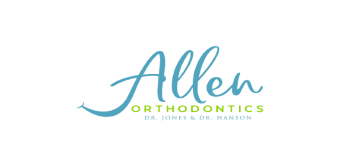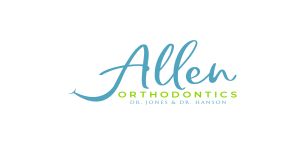Emergency Orthodontist — Allen, TX
When Emergency Strikes, Call Allen Orthodontics!
At Allen Orthodontics, we’ve seen our fair share of orthodontic emergencies. Problems can occur at any moment, whether it’s loose braces or a bracket, severe soft tissue irritation, or something else. Dr. Jones and Dr. Hanson will work quickly to resolve your problem and get your daily routine back on track. The moment you notice something wrong, you’ll want to seek emergency care as soon as possible to prevent your condition from worsening or any additional damage to your braces, teeth, or gums. When you call our orthodontic office to report your problem, we’ll work as quickly as possible to schedule your appointment at the earliest convenience. Learn more about what you can do to both avoid these emergencies and treat them at home by spending some time reviewing the below information about options to treat orthodontic emergencies in Allen. Please call us if you have any other questions.
Why Choose Allen Orthodontics for Emergency Orthodontic Care?
- Open Five Days a Week
- Works Hard to See You ASAP
- Dedicated Team That Cares About Your Comfort
What to Do in an Orthodontic Emergency
- Schedule a same-day appointment: The sooner you give us a call, the more likely we’ll be able to get you seen that very same day. Our office is open five days a week for your convenience. An experienced team member will provide first-aid instructions over the phone to help you manage your situation in the meantime.
- Have an emergency exam: When you get to our office, Dr. Jones or Dr. Hanson will perform a thorough examination to identify the cause of your orthodontic emergency. If possible, your issue will be dealt with immediately.
- Review findings: After the examination, we’ll create a custom treatment plan to get your orthodontic treatment right back on track. Dr. Jones or Dr. Hanson will walk you through the process to ensure you know what to expect before committing to anything.
- Get the care you need: Our team will work quickly to address the problems you’re facing. However, you may need to visit your regular dentist for additional treatment (i.e., fillings, root canal therapy, gum disease treatment)
The Most Common Orthodontic Emergencies
Orthodontic emergencies aren’t very common, but they can still occur when you least expect them to. It’s incredibly important that you seek treatment as soon as possible, especially if you’re in pain or are feeling worried. Call our office right away to schedule an emergency appointment. In the meantime, you can review the tips below on how to manage the most common orthodontic emergencies we see.
Understanding the Cost of Orthodontic Emergencies

No two smiles are the same, which is why it is impossible to say how much your orthodontic emergency will cost until you come in for an exam. Our team will need to perform a thorough examination to determine the best treatment method for your unique case. When you visit our office, we will explain the pricing information and your available financing options to ensure you know what to expect.
Every Orthodontic Emergency Is Different
The cost of your treatment will depend primarily on the details of your emergency situation. Something like a loose bracket or wire may be fairly simple to correct and not require a lot of money. If something is stuck between your teeth, it should be pretty easy to remove.
On the other hand, if the situation is more complex, you may end up paying a lot more money. For example, if you broke your retainer, you may need to pay for a replacement. If you have a severe oral health issue, such as a deep cut in your soft tissue or spots of decay in your teeth, we may have to perform extensive treatment. We might even need to coordinate with your general dentist or another specialist to make sure everything gets taken care of.
Does Dental Insurance Cover Orthodontic Emergencies?
Every dental insurance plan is unique, so there is no way to predict how your benefits might apply to your situation. Some dental plans have a lifetime orthodontic maximum. If you used the entirety of that maximum to pay for your braces upfront, you might not have any coverage available. If your emergency is directly related to the state of your teeth, though, your regular dental coverage might pay for a portion of your care. Our team welcomes insurance, and we will do all we can to help you understand how your benefits apply in any given situation.
Other Options for Making Orthodontic Emergencies Affordable
Beyond insurance, there are other provisions that might make it easier for you to manage the cost of your orthodontic emergency. For example, the Allen Orthodontics team offers no-interest payment plans for various services. This in-house service is easy to sign up for, and it can allow you to pay for your treatment gradually over time.
You might also be able to use your healthcare savings account or flexible spending account to pay for your treatment.
Taking Care of Your Smile Can Save You Money
The best way to reduce the cost of orthodontic emergencies is by taking great care of your smile. Here are some tips that can help you to reduce your risk of running into an emergency situation (or reduce the severity of an emergency):
- Be sure to attend all scheduled orthodontic checkups.
- Do not neglect regular preventive care with your general dentist.
- Be careful when you are eating — you should avoid sticky and hard foods that might damage your braces.
- If you feel that something is wrong with your orthodontic treatment, reach out for treatment as soon as possible. The longer you wait, the more likely it is that the situation will worsen and lead to increased expenses.
Keys to Preventing Orthodontic Emergencies

Rest assured, you can turn to our team at Allen Orthodontics if any orthodontic emergencies arise – from a loose bracket to a broken retainer. Even then, it’s still important to try and take precautions to avoid any damage to your braces or smile. That’s why we encourage our patients to adopt healthy habits, including:
Prioritize Your Check-In Visits
In addition to prioritizing your biannual dental checkups and cleanings, you should prioritize your check-in visits with our Allen orthodontic team. At each appointment, we take the time to ensure your braces are in good shape and no problems or issues are present. We also use these visits as an opportunity to make sure your teeth are moving as anticipated and that we answer any questions you have.
Maintain Good Oral Hygiene At Home
Since tooth decay, gum disease, and other oral health problems can result in treatment plan delays, it’s extremely important that you do what you can to keep your teeth and gums healthy. That starts with brushing your teeth (and braces) after each meal and extends to flossing and rinsing with mouthwash daily. You might find it helpful to buy some special oral hygiene products, like an interproximal toothbrush and pre-threaded floss.
Don’t Eat Anything Crunchy
At the beginning of your orthodontic treatment, we’ll let you know if you need to adjust your diet in any way. If you have traditional braces or a lot of attachments, then we recommend not eating anything hard, sticky, or crunchy. Raw carrots, certain nuts, popcorn, tortilla chips, and thin pizza crust are a few examples. The best thing to do is stock up on plain yogurt, oatmeal, eggs, soups, whole-grain pasta, and other softer foods that are also nutrient-dense.
Wear a Mouthguard When Playing Sports
The good news is that starting orthodontic treatment doesn’t mean ending your participation in sports like soccer, football, and wrestling. Instead, it means that you need to wear a protective mouthguard while on the field, court, or mat. In fact, we may even recommend having a custom mouthguard made if you skateboard, surf, or participate in another solo sport.
Quit Unhealthy Dental Habits
Do you bite your nails? Do you chew on the back of your pen? Do you use your teeth to tear into plastic wrapping? If you answered “yes” to any of these questions, there’s no time like the present to quit. After all, the last thing you want is to damage your teeth and braces in the process, resulting in a painful dental injury and delays to your treatment plan.
What Are the Best Ways to Care for Braces/Retainers at Home?

Depending on the scenarios you face, there are ways you can take care of your braces at home when a problem arises. Not all situations require an immediate visit to the emergency orthodontist, but it’s always a good idea to call and inform our team of a problem you’re unable to fix or are too concerned to handle at home.
Keep these tips in mind:
- Be sure to floss between the wire and tooth to loosen any food that becomes stuck. This can lead to possible cavities and tooth decay.
- When a regular toothbrush isn’t up to the task of cleaning your teeth and braces, feel free to ask us about other helpful products that do work. There are specialized toothbrushes you can buy that can benefit your smile as you wear your brackets and wires.
- After you received your retainer, clean it using toothbrush and water. This will loosen it of any food debris. Soak it in a denture cleanser and be sure to rinse it well before placing it back into your mouth.
Orthodontic Emergency FAQs
From how to get a good night’s sleep with tooth pain to where you should turn for treatment, it’s completely normal for patients to have questions about orthodontic emergencies. After all, you want to be as prepared as possible on the off chance that you do experience one. That’s why we’ve dedicated this next section to answering commonly asked questions about orthodontic emergencies.
How should I sleep with tooth pain?
Throughout your orthodontic treatment, you may experience some tooth pain (typically following your adjustment appointments). The good news is that there are several measures you can take to alleviate your discomfort and sleep soundly. First, don’t eat anything particularly chewy or crunchy for dinner, like tortilla chips. Next, take an OTC pain reliever about 30 minutes before bed. You can also place a cold compress against the outside of your cheek for 10 minutes at a time, which will help alleviate uncomfortable inflammation.
Should I visit the emergency room first for orthodontic emergencies?
Remember, hospitals don’t typically have dental professionals on staff. Therefore, you shouldn’t head there first unless you’re experiencing potentially life-threatening symptoms, like uncontrollable bleeding, difficulty swallowing, or a fractured jaw. For “straightforward” orthodontic emergencies (i.e., broken brackets, loose wires, lost retainers), your first call should be to our Allen orthodontic office.
What does throbbing tooth pain mean?
Although some soreness is normal with braces, throbbing tooth pain is not. Typically, this is a symptom of a serious dental emergency, like a large crack or an infection. That’s why we recommend bringing any abnormal symptoms to our team’s attention early on. That way, we can determine what the cause is and what the next best steps are ASAP.
Do I need to visit for minor chips to teeth?
In short, the answer is “yes.” Even though small chips may not seem like much of an issue (and may not cause you any pain), they do warrant a visit. We need to make sure none of your other teeth were damaged and that the chipped tooth isn’t at risk of becoming infected or splitting further.
Are toothpicks safe to use?
If you have something stuck between your teeth or around a bracket, don’t use a sharp object, like a toothpick or tweezers. This can quickly result in a soft tissue injury that does require immediate attention. Instead, we recommend loosening the debris by rinsing your mouth with a mixture of warm water and salt. Then, use your toothbrush or some floss to clean the area thoroughly. If you don’t have any luck with this, then call our team to schedule an appointment.
Traditional Braces Clear Braces Self-ligating Braces Invisalign Clear Aligners Phase 1 Pediatric Orthodontics Adult Orthodontics Orthodontic Appliances Dentofacial Orthopedics Orthodontic Technology View Our Services

